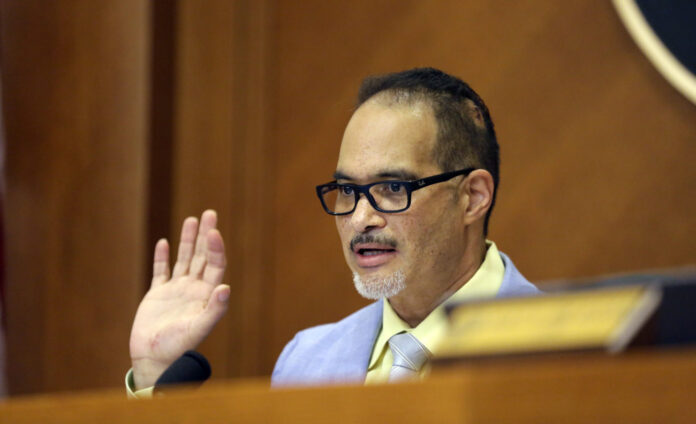Faced with the impacts of the global pandemic, Democratic state legislators announced their healthcare priorities for the next legislative session while also taking the opportunity to highlight what they viewed as failures by state officials when it came to responding to the COVID-19 pandemic.
The Texas House Democratic Caucus’ healthcare working group held a discussion Wednesday to present what they planned to focus on during the 2021 legislative session when it came to healthcare needs for the state.
For state Rep. Garnet Coleman, D-Houston, Medicaid expansion under the Affordable Care Act remained the top priority.
“That’s something we all should focus on because it makes the most difference to Texas,” Coleman said.
State Rep. John H. Bucy III, D-Austin, shared that sentiment.
“It’s a no-brainer, win-win, for the people of this state,” Bucy said. “It’s an issue that we talk about, we’ve been fighting for forever but it continues to be undermined for partinsanship by the other side.”
Bucy noted that approximately 1.5 million Texans would receive health coverage if they passed Medicaid expansion and added that taxes paid to the federal government would be returned to the state.
“We’re talking about bringing our tax dollars back, $110 billion would come back to Texas over the next decade,” Bucy said. “These are dollars that we already pay for; this is a federal law. Our money goes, instead, to help other worthy states who are working hard for their people that have passed Medicaid expansion. We need to do the same.”
While other representatives agreed that expanding access to health care was a necessity, state Rep. Julie Johnson, D-Dallas, also wanted to focus improving insurance for people who already had it.
“Right now, that system is broken too,” Johnson said. “We have burdensome prior authorization requirements, we have woefully inadequate networks, we have out-of-network billing problems that are making it impossible for people to get the care they desire and the care that they need and these issues are very, very important.”
Among the groups most vulnerable to COVID-19 are employees and residents of nursing homes which have been hotbeds for outbreaks of the virus.
State Rep. Gina Hinojosa, D-Austin, criticized the state’s response, arguing state officials were slow to set up protocols and to provide adequate testing, adequate personal protective equipment, and adequate staffing.
“As a result, we have seen too many deaths in nursing home residents — over 3,500 nursing home residents have died in the state of Texas,” Hinojosa said. “While we expect this population to be more vulnerable to the effects of COVID-19, we should have prepared, anticipated this challenge and provided those basic requirements to keep residents safe.”
Another vulnerable group is foster children who have been disproportionately impacted by COVID-19, pointed out state Rep. Thresa “Terry” Meza, D-Irving.
“The foster children in Texas are contracting the coronavirus at nearly double the rate of the Texas general population,” Meza said. “In late August, the positivity rate was around 20%.”
Meza added that the pandemic was also disproportionately affecting their education with only about 63% of children in foster care having access to virtual instruction.
In terms of managing COVID-19, state Rep. Donna Howard, D-Austin, pledged to focus on improving the immunization registry, called ImmTrac2, during the next session.
“We know that the vaccine is our silver bullet against this virus but that’s only true if we have widespread vaccination in our state,” Howard said, “and the registry is the one thing that will help us make that happen.”
ImmTrac2 is a centralized system offered by the Department of State Health Services that stores immunization records from multiple sources.
It is available at no cost to all Texans but requires written consent by individuals to participate in the registry.
Several drug manufacturers are currently in various stages of testing the safety and effectiveness of their own vaccine and Howard said there was a high likelihood that, once made available to the public, some would require two shots — the initial shot and a booster shot.
The registry, she said, would allow doctors and healthcare providers keep track of which vaccine a patient is taking and ensuring they return for the booster shot.
“Thankfully, the federal disaster declaration makes it so that adult’s COVID-19 vaccinations are automatically put into ImmTrac2,” she added. “Put simply, you must have your COVID-19 vaccine in ImmTrac2 in order to even receive a COVID-19 vaccine and that’s actually a good thing.”
She argued the tool would safely allow people to get back to work and allow children to return to school.
“This is how we’re going to protect each other,” Howard said. “This is how we’re going to get things back to normal.”




